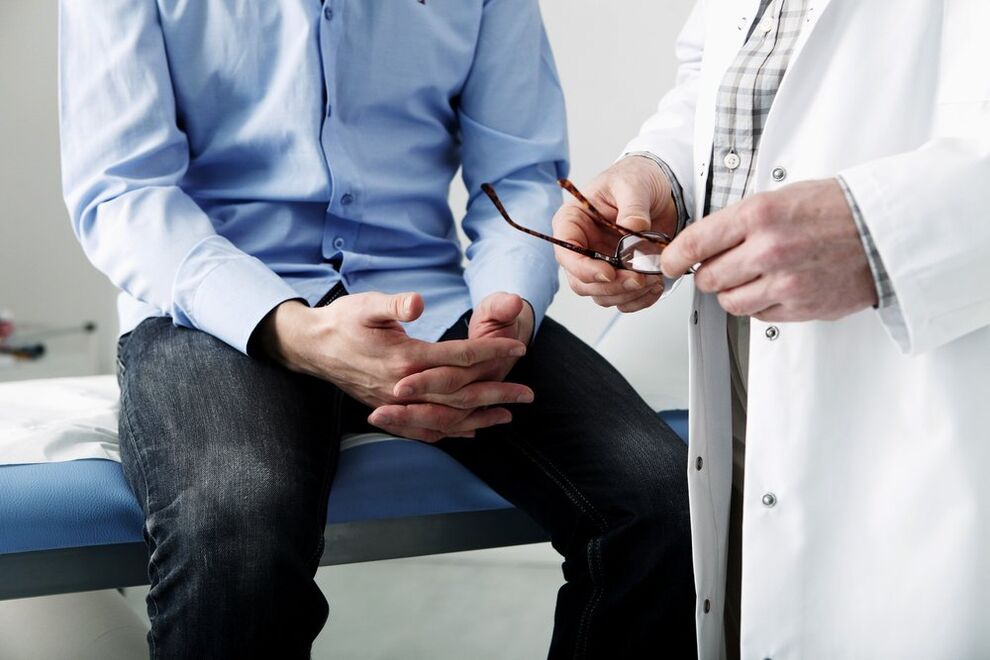Prostatitis is inflammation of the prostate gland.
The prostate is also a prostate, only in men. One small organ performs several functions: partially responsible for ejaculation, partially for urination, partially for protection against infections. Therefore, when the prostate gets sick, the case is not limited to pain, for example. Problems begin in the entire genitourinary system.
Prostatitis is, contrary to common opinion, not an age -related disease.
An increase in prostate and its cancer, indeed, are more common in elderly men, and prostatitis can be sick at any age.
How does it happen
Like most inflammatory diseases, prostatitis is acute and chronic.
- Sharp - this is the one that began suddenly, and then either passed or turned into a chronic one. As a rule, infection in this development of events is to blame.
- Chronic - the one that is manifested by unpleasant symptoms, then calms down. This condition can last for years. Unfortunately, it is the second option that is widespread, and its causes are not only infectious.
What are the symptoms of prostatitis

Signs of prostatitis are slightly different depending on the type of disease. Patients will help little these details, but the doctor needs a diagnosis to make a diagnosis. Therefore, be sure to tell you at the reception: when symptoms appear, when they subside, which, in your opinion, served as the cause of the disease.
So, the main symptoms of prostatitis:
- Pain. The prostate is located below the bladder, between the paths where urine passes and rectum. Therefore, due to inflammation, it can hurt in several places at once: in the penis, around it, in the scrotum, around the anus or even in the lower abdomen or back. Pain can appear during ejaculation or after sex.
- Difficulties with urination. Pain and burning appears, you have to run to the toilet often, get up at night. It can be difficult to start and finish the process, it may even appear blood in the urine.
- Discharges from the urethra. A thick liquid that you have not noticed before.
- Problems with potency.
If any of the symptoms lasts more than three months, this is already chronic prostatitis. And if in acute prostatitis all these signs are noticeable and they cannot be missed, then chronic can only manifest itself with erectile dysfunction.
When to go to the doctor
As soon as you notice the listed symptoms of prostatitis. It will be necessary to take tests and conduct research to correctly diagnose and prescribe treatment. Some examinations are unpleasant, but certainly not worse than prostatitis.
You can not even postpone a visit to a doctor for a minute, if you have dysuria - the inability to go to the toilet. This is a dangerous condition in which the liquid continues to accumulate in the bladder. It is necessary to urgently move to the hospital or call an ambulance.
Where the prostatitis comes from
If prostatitis is infectious, then its reason is the microorganisms that penetrated the urethra and climbed to the prostate or managed to get there from other foci of infection. Often the infection clings after unprotected sex, so we must think about the prevention of sexually transmitted diseases.
In all other cases, it is impossible to say exactly why the prostate is inflamed. One can only assume some stagnant phenomena because of sedentary work and lack of sports and the influence of bad habits.
If you have a prostate, you can get sick.
But there are risk factors that warn that health is in danger:
- Age from 30 to 50 years.
- Any infections in the organs of the pelvis and abdominal cavity (in the intestines, for example).
- Acute prostatitis in the past.
- Any operations and interventions in the genitourinary system.
- Pelvic injuries.
How to treat prostatitis
It all depends on the reason why it appeared. If bacteria are to blame, they are destroyed by antibiotics. Usually everything is limited to this. There are rarely complications that require surgery and surgical processing of the prostate.
If it is not in microbes, they try to reduce the symptoms with painkillers and special products that relax smooth muscles and help solve urination problems. They use physical treatment, warm baths, physical education - everything that will work and from which it will become easier.
How not to get prostatitis

Unfortunately, there are no one hundred percent reliable measures of prevention of prostatitis, especially when it is about a chronic disease that is not caused by infections. There are no reliable data that dietary supplements, a folk remedy or breakthrough methodology will protect you. All that we can do not lean on irritating food, drink enough water to provide normal urination, and protect against infections:
- Follow hygiene.
- Use condoms to prevent IPP.
- To treat any infectious diseases, especially urinary tract.
- When unpleasant symptoms appear, immediately visit a doctor in order to start treatment as early as possible and not start the disease.























